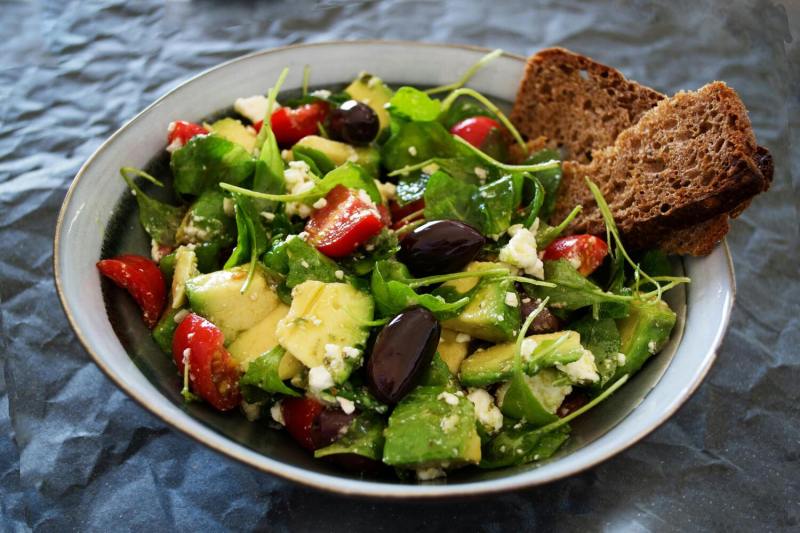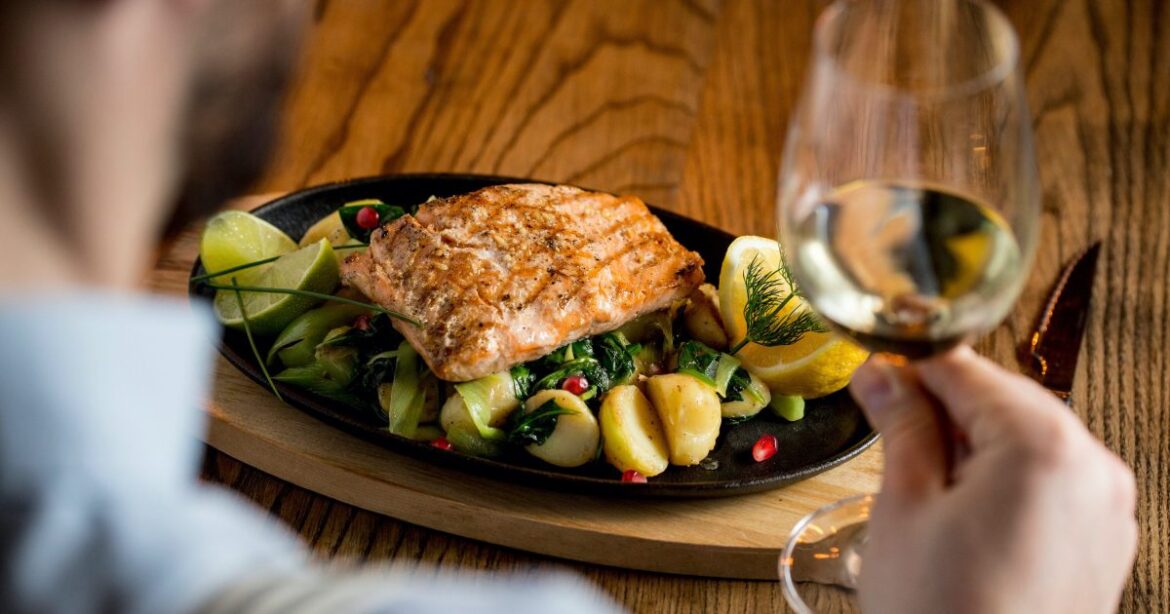The Mediterranean diet and intermittent fasting have been increasing in popularity as more clinical studies publish their benefits. As a nutritionist, I have used both methods to help clients lose weight or simply become healthier. You may already be following one or the other, but can you combine them?
Keep reading to learn if you can follow the Mediterranean diet for intermittent fasting, the benefits of each, and some practical tips for sticking to healthier habits long-term. Let’s dive in!
Why is the Mediterranean diet linked to a longer lifespan?

Carey / Adobe Stock
The Mediterranean diet has long been recognized as one of the healthiest eating patterns in the world, consistently linked to longevity. Rooted in traditional foods from Greece, Italy, and surrounding regions, it emphasizes whole grains, fresh vegetables, fruits, legumes, nuts, olive oil, and lean proteins like fish. These nutrient-dense foods provide antioxidants and anti-inflammatory compounds that support heart and brain health.
Research shows that populations following this diet experience lower rates of chronic conditions such as heart disease, diabetes, and certain cancers. A large-scale study published in The New England Journal of Medicine found that “[adherence to the Mediterranean diet] was associated with a lower risk of major cardiovascular events over a period of 5 years than [adherence] to a control (low-fat) diet, with a relative difference of 30%.” This protective effect is one reason why it’s often recommended for long-term health.
By focusing on balance, variety, and moderation rather than strict rules, the Mediterranean diet not only supports longevity but also makes healthy eating enjoyable and sustainable.
How does intermittent fasting improve cellular health?

User14907984 / Designed by Freepik
Intermittent fasting (IF) has gained significant attention for its potential to enhance cellular repair and improve longevity. Instead of focusing on what you eat, fasting emphasizes when you eat, creating periods where the body can rest and recover. These fasting windows encourage metabolic changes that improve insulin sensitivity and reduce inflammation.
One of the most intriguing benefits of IF is its link to autophagy, the body’s natural process of clearing out damaged cells and recycling cellular components. According to research published in Nature Aging, autophagy plays a vital role in preventing age-related diseases and supporting overall health. Fasting stimulates this process, making it a powerful tool for cellular rejuvenation.
By giving the digestive system a break, intermittent fasting also helps regulate energy balance and hormone function. This can improve long-term metabolic health, which is closely tied to the prevention of chronic illness and extended lifespan.
The benefits of combining two proven lifestyles

Dana Tentis / Pexels
When the Mediterranean diet and intermittent fasting are combined, they create a powerful synergy for promoting longevity. The Mediterranean diet supplies nutrient-rich, anti-inflammatory foods, while fasting optimizes when those nutrients are processed. Together, they reduce oxidative stress, improve metabolic function, and support long-term health.
For example, eating Mediterranean-inspired meals during eating windows ensures you get plenty of fiber, healthy fats, and lean proteins. These foods help maintain steady energy and prevent blood sugar spikes that often undermine the benefits of fasting. Pairing olive oil, fish, and vegetables with fasting periods maximizes nutrient absorption and cellular recovery.
Both approaches can reduce risk factors for cardiovascular disease and age-related decline, but when used together, they may amplify results. This combination offers not just better physical health but also mental clarity, resilience, and a more sustainable lifestyle that supports longevity.
Practical tips for long-term success and sustainability

Unsplash
Starting a Mediterranean diet while practicing intermittent fasting doesn’t have to be complicated. Consider implementing the following tips:
Start with small fasting windows. Begin with a 12-hour fast overnight and expand slowly as your body adjusts, rather than jumping into longer fasts right away.
Build meals around Mediterranean staples. Prioritize vegetables, whole grains, legumes, olive oil, and fish to ensure you get nutrient-rich, balanced meals.
Plan simple meal combinations. For example, you could enjoy grilled salmon with quinoa and roasted vegetables for lunch, or lentil soup with a side salad for dinner.
Choose nourishing snacks. Keep options like nuts, fresh fruit, or olives on hand to stay satisfied without breaking the principles of the diet.
Stay consistent but flexible. Focus on creating sustainable habits, allowing yourself some flexibility for social meals or special occasions.
Enjoy food as an experience. Share meals with others when possible and savor each bite, since both the Mediterranean diet and longevity research highlight the importance of mindful eating.
Frequently asked questions

Tima Miroshnichenko / Pexels
What is not allowed on the Mediterranean diet?
The Mediterranean diet avoids heavily processed foods, refined sugars, and excess red or processed meats. Butter and margarine are replaced with olive oil, while refined grains like white bread and pasta are limited. Sugary drinks, packaged snacks, and high-fat processed dairy products are also discouraged to maintain the diet’s health benefits.
How much weight can I lose with intermittent fasting?
Weight loss with intermittent fasting varies, but many people lose one to two pounds per week as long as they are in a calorie deficit. Ultimately, your results depend on calorie intake, activity level, and consistency, making it a flexible yet sustainable approach to weight management.
What do you eat for breakfast on the Mediterranean diet?
A Mediterranean diet breakfast often includes whole grains, fresh fruit, and protein-rich options. Examples are Greek yogurt with berries and nuts, oatmeal with olive oil and seeds, or whole-grain toast topped with avocado and tomato. These meals provide lasting energy, healthy fats, and nutrients to start the day strong.


Dining and Cooking